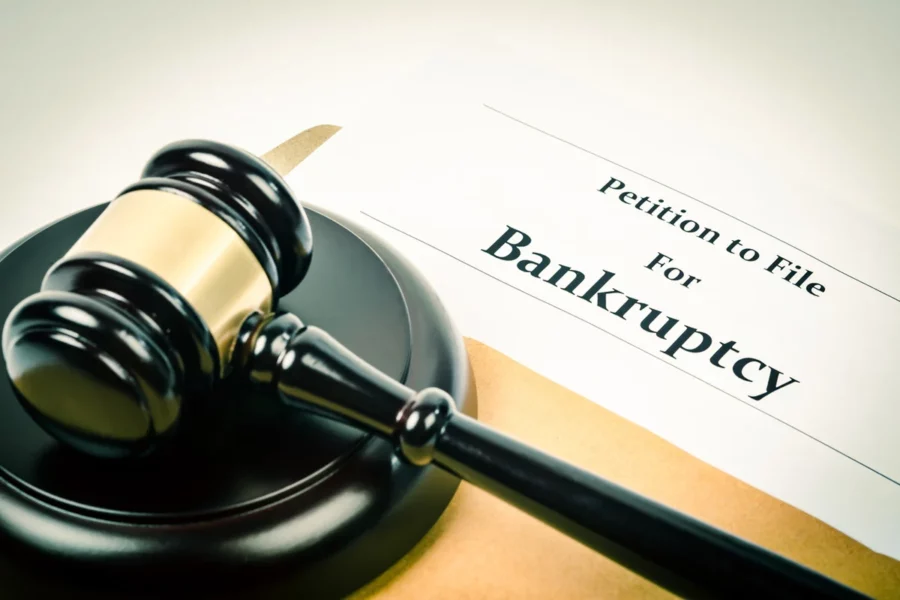Insolvency lawyers play a vital role in helping businesses and individuals navigate through the complex and challenging process of insolvency. Understanding the role of insolvency lawyers is essential for anyone facing financial difficulties or seeking legal guidance in times of distress.
Understanding the Role of Insolvency Lawyers
In order to fully comprehend the significance of insolvency lawyers, it is important to first define the concept of insolvency itself.
Insolvency lawyers is a complex financial state that can have significant legal implications for individuals and businesses alike. It occurs when an entity is unable to meet its financial obligations, leading to a point of financial distress that requires expert intervention. This is where insolvency lawyers play a crucial role in providing guidance and legal support to navigate through these challenging circumstances.
Definition of Insolvency
Insolvency refers to the state of financial distress where a person or business is unable to meet their financial obligations. It is a critical point where the assistance of an insolvency lawyer becomes crucial.
Insolvency can manifest in various forms, such as cash flow insolvency where an entity is unable to pay its debts as they fall due, or balance sheet insolvency where liabilities exceed assets. Understanding these nuances is essential for insolvency lawyers to tailor their legal strategies effectively to address the specific needs of their clients.

Key Responsibilities of Insolvency Lawyers
Insolvency lawyers are well-versed in the legalities surrounding insolvency and are equipped with extensive knowledge and expertise to help their clients navigate through the complexities. Their responsibilities include:
- Assessing the financial situation of clients to determine the most appropriate course of action.
- Advising clients on the various legal options available to them, such as bankruptcy and restructuring.
- Assisting clients in filing relevant legal documents and ensuring compliance with all necessary regulations.
- Representing clients in legal proceedings, including negotiations with creditors and court hearings.
- Providing guidance and support throughout the entire insolvency process.
Moreover, insolvency lawyers often work closely with other professionals, such as accountants and financial advisors, to develop comprehensive solutions that address both the legal and financial aspects of insolvency. This collaborative approach ensures that clients receive holistic support to navigate through the complexities of insolvency proceedings effectively.
The Legal Framework for Insolvency
Insolvency is governed by a comprehensive legal framework that varies depending on the jurisdiction. Understanding these laws and regulations is essential when dealing with insolvency cases.
Insolvency laws are designed to provide a structured process for individuals and businesses facing financial distress. These laws aim to balance the interests of debtors and creditors while ensuring a fair and orderly resolution of insolvency cases. Legal professionals specializing in insolvency law play a vital role in interpreting and applying these regulations to protect the rights of all parties involved.
Bankruptcy Laws and Regulations
Bankruptcy laws outline the procedures and requirements for individuals and businesses seeking financial relief through bankruptcy. Insolvency lawyers are well-versed in these laws and can guide clients through the entire bankruptcy process.
Bankruptcy proceedings can take various forms, such as Chapter 7 liquidation or Chapter 13 reorganization, each with its own set of rules and implications. These laws not only provide a mechanism for debtors to obtain a fresh start but also establish mechanisms to ensure that creditors receive fair treatment and repayment to the extent possible. Learn more about fair treatment at https://medicine.wright.edu/student-life/policies/fair-treatment-of-students
Corporate Insolvency Laws
Corporate insolvency laws are specifically tailored to address the financial difficulties faced by companies. These laws outline the procedures for handling corporate insolvency, including liquidation and business rescue options. Insolvency lawyers play a crucial role in assisting businesses in navigating these complex regulations.
Corporate insolvency proceedings often involve intricate negotiations between stakeholders, such as shareholders, creditors, and management, to determine the best course of action for the company’s financial future. Legal experts specializing in corporate insolvency provide strategic advice and representation to help companies explore restructuring opportunities or wind down operations in a manner that maximizes value for all parties involved.
The Process of Insolvency
The process of insolvency is a complex and multifaceted journey that individuals and businesses may find themselves navigating. It requires a deep understanding of financial laws, strategic planning, and timely decision-making. Insolvency lawyers play a pivotal role in guiding their clients through this challenging terrain, offering expertise and support every step of the way.
When faced with insolvency, it is essential to approach the situation with diligence and caution. Seeking professional legal advice early on can make a significant difference in the outcome of the process, potentially safeguarding assets and mitigating losses.
Early Warning Signs of Insolvency
Recognizing the early warning signs of insolvency is paramount for individuals and organizations seeking to avert financial crises. These signs may include cash flow problems, mounting debts, or legal actions from creditors. Insolvency lawyers are adept at identifying these red flags and devising proactive strategies to address them effectively.
Moreover, understanding the root causes of insolvency can provide valuable insights for implementing long-term financial stability measures. By working closely with insolvency lawyers, clients can gain a comprehensive understanding of their financial situation and explore viable solutions to navigate through turbulent times. Click here to learn more about root causes.
Steps in the Insolvency Process
The insolvency process encompasses a series of intricate steps, from initial filings to negotiations and potential court proceedings. Each stage demands meticulous attention to detail and adherence to legal protocols. Insolvency lawyers serve as trusted advisors, offering personalized guidance tailored to their clients’ specific circumstances.
Furthermore, effective communication with creditors is a critical aspect of the insolvency process. Insolvency lawyers act as intermediaries, facilitating discussions and negotiations to reach mutually beneficial agreements. By fostering transparent and constructive dialogue, they strive to achieve favorable outcomes for their clients while upholding legal obligations.

How Insolvency Lawyers Assist Clients
Insolvency lawyers offer a wide range of services to assist their clients in navigating through the challenging circumstances of insolvency.
When facing insolvency, clients often find themselves overwhelmed by the complex legal procedures and financial implications involved. Insolvency lawyers step in to provide clarity and guidance, offering a sense of reassurance during what can be a tumultuous time. By leveraging their expertise in insolvency law, these legal professionals help clients make informed decisions and navigate the intricacies of the insolvency process with confidence.
Legal Advice and Representation
Insolvency lawyers provide clients with valuable legal advice and act as their representatives in legal proceedings. They ensure that their clients’ rights are protected and that their best interests are served throughout the process.
Furthermore, insolvency lawyers play a pivotal role in advocating for their clients’ rights in courtrooms and negotiations. They meticulously review legal documents, assess the financial implications of different courses of action, and craft strategic legal arguments to support their clients’ positions. This comprehensive approach not only safeguards the clients’ interests but also enhances their prospects of achieving a favorable resolution in the face of insolvency challenges.
Negotiating with Creditors
Negotiating with creditors is a crucial aspect of the insolvency process. Insolvency lawyers possess the necessary skills and experience to negotiate favorable terms on behalf of their clients and help them achieve the best possible outcome.
Effective negotiation with creditors requires a delicate balance of legal acumen and interpersonal skills. Insolvency lawyers excel in this arena by engaging in constructive dialogue with creditors, exploring alternative repayment arrangements, and advocating for manageable debt restructuring options. By fostering open communication and building trust with creditors, insolvency lawyers strive to reach mutually beneficial agreements that alleviate financial burdens and pave the way for a fresh start for their clients.
The Impact of Insolvency on Businesses and Individuals
The consequences of insolvency can have a significant impact on both businesses and individuals, making the role of insolvency lawyers even more essential.
Insolvency is a complex and challenging situation that can arise when a business or individual is unable to meet their financial obligations. It can be triggered by various factors such as economic downturns, unexpected expenses, or mismanagement of finances. When insolvency occurs, it can have wide-ranging effects on all parties involved, from creditors seeking repayment to employees facing job uncertainty.
Consequences of Insolvency for Businesses
For businesses, insolvency can lead to liquidation, closure, or the need for restructuring and turnaround. Insolvency lawyers provide crucial guidance and support to businesses, helping them explore all available options and navigate through the challenging process.
During insolvency proceedings, businesses may have to make tough decisions regarding their future, including selling off assets, laying off employees, or negotiating with creditors. Insolvency lawyers play a key role in representing the interests of the business, ensuring that all legal requirements are met and advocating for the best possible outcome.
Implications of Insolvency for Individuals
Insolvency can have far-reaching implications on individuals, including personal financial challenges, potential loss of assets, and damage to credit ratings. Insolvency lawyers assist individuals in understanding their rights and options, enabling them to make informed decisions during this difficult time.
Individuals facing insolvency may experience significant stress and uncertainty about their financial future. Insolvency lawyers provide valuable support by guiding them through the legal process, explaining their rights, and helping them explore solutions such as debt restructuring or bankruptcy.
In conclusion, insolvency lawyers play a vital role in guiding businesses and individuals through the complexities of insolvency. Their expertise and support help clients navigate the legal landscape, negotiate with creditors, and ultimately find the best possible resolution to their financial difficulties. If you find yourself facing insolvency, seeking the assistance of an experienced insolvency lawyer can make all the difference in effectively managing and resolving your financial challenges.
Other resources: Corporate Lawyers vs. Commercial Lawyers Understanding the Difference








